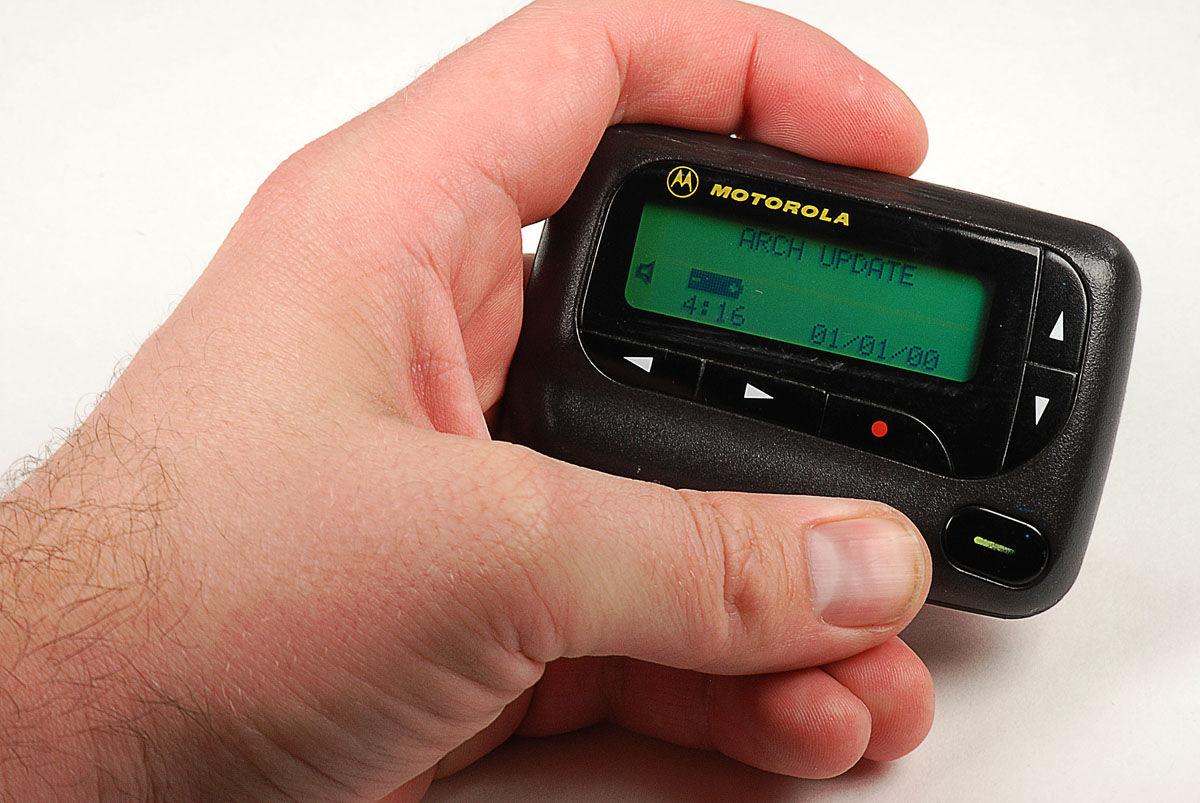

It is easy to forget in today’s world of smartphones and our ability to communicate anytime, anywhere, with anyone, that before the world of mobile phones life was a bit different.
When a person ventured outside their office, home or business, they were essentially out of contact for the duration of their journey, unless they could access a public payphone.
But there was one way to keep in contact when people were ‘out in the field’, and that was the humble pager.
It took seven years to develop the system, and it was a radio that allowed for one-way radio communication with police patrol cars, which was officially launched in 1928.
But that system relied on radio, and it wasn’t until 1949 when Al Gross came up with a telephone pager that most of would recognise today. These devices were not called pagers, and were only available for use by doctors in New York in the 1950s.
Regular members of the public couldn’t get them, and the FCC didn’t officially approve the use of pagers for public use until 1958.
But one famous tech company can be credited with driving the growing pager market and that was Motorola.
Indeed, Motorola coined the term ‘pager’ in 1959 when it called its personal radio communications product a pager, after it managed to combine elements of Motorola’s walkie-talkie and car radio technologies into the first transistorised pager.
So what was it? Well a pager was a small wireless telecommunications device that could receive and display numeric messages. Prior to the 1970s however, pagers could only play a tone, but a doctor for example would know what action he or she had to take upon hearing that tone, such as return immediately to the hospital.
Later versions could also receive and recite voice messages.
So early versions were known as one-way pagers that could only receive messages, but later models (known as two-way pagers), could also reply to messages.
And people soon began to realise the benefits of these devices, to help them to remain in some form of contact whilst out and about. Thus by 1980, there were 3.2 million pager users worldwide.
Until then one of the drawbacks however was the 25 mile range of these devices, so they were often used within hospitals and specific areas of certain cities.
But in the 1980s, wide-area paging had been invented which allowed messages to be carried over radio waves across a city, state, or even an entire country.
By 1990 there over 22 million pagers in use around the world, but at that time mobile phones were beginning to appear.
That said, mobile phones back then were big and expensive, with shockingly poor battery life, and it would take years before they could make a dent in the pager market.
This meant that by 1994, there were over 61 million pagers in use, as usage of the pager expanded out of the hands of doctors and engineers, and into the grubby little hands of the general public.
But the 1990s proved to be the high point for the pager, and while they are still in use today in certain sectors such as healthcare and the emergency services, the mobile phone and more latterly the smartphone has become the dominant communication tool of our age.
Quiz: What do you know about Android?
OpenAI chief operating officer Brad Lightcap to oversee international expansion as company consolidates lead in…
Chinese researchers publish details on device that could wreak havoc on undersea communications cables in…
Former Intel chief Gelsinger expands role at Gloo, becoming executive chairman and head of technology…
MEPs add to Commission pressure for second EU Chips Act amidst industry calls for renewed…
Smartphone maker Xiaomi reportedly raises about $5.5bn in Hong Kong share sale as it invests…
BYD's Qin L EV sedan starts at about half the price of Tesla's Model 3,…